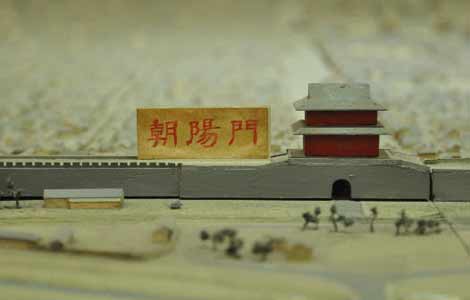New road a changing path to prosperity
Updated: 2013-08-27 06:51
By Liu Xiangrui and Daqiong (China Daily)
|
|||||||||||
 |
|
Jikmey Dorje has witnessed how growing traffic enriches the life of Medog. |
Jikmey Dorje says no one knows better how roads can change a man's life than himself.
The 55-year-old has witnessed Medog's traffic evolve over the past few decades, from the meandering forest path to a horse road, a way for small tractors and now the new roadway. He has also become wealthy by closely monitoring such improvements.
Growing up in a village near Medog's county town, Jikmey had to help relieve the family burdens because of his mother's disability and his father's bad health. When he was 11, he started carrying home salt and other daily necessities on his back from outside the county, following other villagers. He would tote about 15 kilograms of salt at first, walking several days on the poor roads and climbing over snow-capped mountains.
"I cried many times on the way, because I was too young and I couldn't catch others," he recalls.
As he grew older and stronger, the burden on his back got heavier and heavier.
In the late 1980s, Medog had a horse track leading to the outside world, and teams of horses carrying goods were common.
Jikmey joined the horse-transport business. At first, he could only afford to buy a few horses, and often had to take the extra goods on his own back.
"I'd buy one more horse at a time with the money I saved," says Jikmey, who owned 12 horses by 1998. He hired fellow villagers as his assistants.
Each journey by horse took more than 10 days. The crew carried plastic sheet and cooking tools, and cut trees for simple shelters at night.
They tried to rest near grasslands for the horses. Sometimes humans had to take up the goods when a horse suddenly fell ill on the way, he says.
Related:
Related Stories
Experiencing matsutake delicacies in Tibet 2013-08-27 10:29
Tibetan ethnic costumes presented at festival 2013-08-26 13:49
A country practice 2013-08-26 10:57
Electricity: a curiosity no longer 2013-08-26 10:50
Completed road spurs economy 2013-08-26 10:50
Biggest restaurant in Lhasa carries forward Tibetan food culture 2013-08-22 10:17
Today's Top News
Foreigners nabbed for personal info trafficking
Caution urged in online reporting of violence
Group renting debate revived by boy's death
Public mixed over changes to train ticket returns
Concerns of growth at cost of environment
Scientists want stricter control of bird markets
Metro offers passengers books to borrow
Beijing seeks to cement relations with Singapore
Hot Topics
Lunar probe , China growth forecasts, Emission rules get tougher, China seen through 'colored lens', International board,
Editor's Picks

|

|

|

|

|

|





